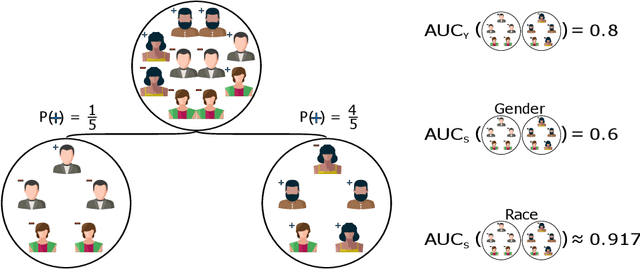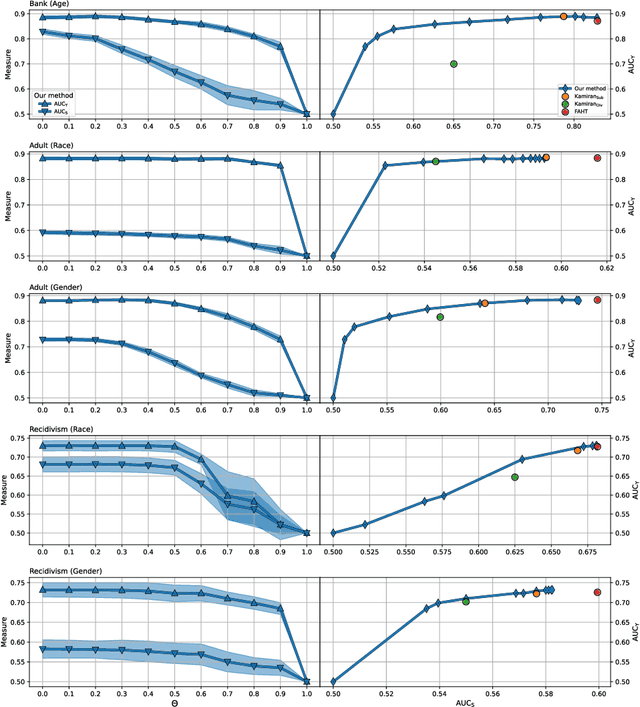Fair Tree Learning
Paper and Code
Oct 25, 2021


When dealing with sensitive data in automated data-driven decision-making, an important concern is to learn predictors with high performance towards a class label, whilst minimising for the discrimination towards some sensitive attribute, like gender or race, induced from biased data. Various hybrid optimisation criteria exist which combine classification performance with a fairness metric. However, while the threshold-free ROC-AUC is the standard for measuring traditional classification model performance, current fair decision tree methods only optimise for a fixed threshold on both the classification task as well as the fairness metric. Moreover, current tree learning frameworks do not allow for fair treatment with respect to multiple categories or multiple sensitive attributes. Lastly, the end-users of a fair model should be able to balance fairness and classification performance according to their specific ethical, legal, and societal needs. In this paper we address these shortcomings by proposing a threshold-independent fairness metric termed uniform demographic parity, and a derived splitting criterion entitled SCAFF -- Splitting Criterion AUC for Fairness -- towards fair decision tree learning, which extends to bagged and boosted frameworks. Compared to the state-of-the-art, our method provides three main advantages: (1) classifier performance and fairness are defined continuously instead of relying upon an, often arbitrary, decision threshold; (2) it leverages multiple sensitive attributes simultaneously, of which the values may be multicategorical; and (3) the unavoidable performance-fairness trade-off is tunable during learning. In our experiments, we demonstrate how SCAFF attains high predictive performance towards the class label and low discrimination with respect to binary, multicategorical, and multiple sensitive attributes, further substantiating our claims.
 Add to Chrome
Add to Chrome Add to Firefox
Add to Firefox Add to Edge
Add to Edge